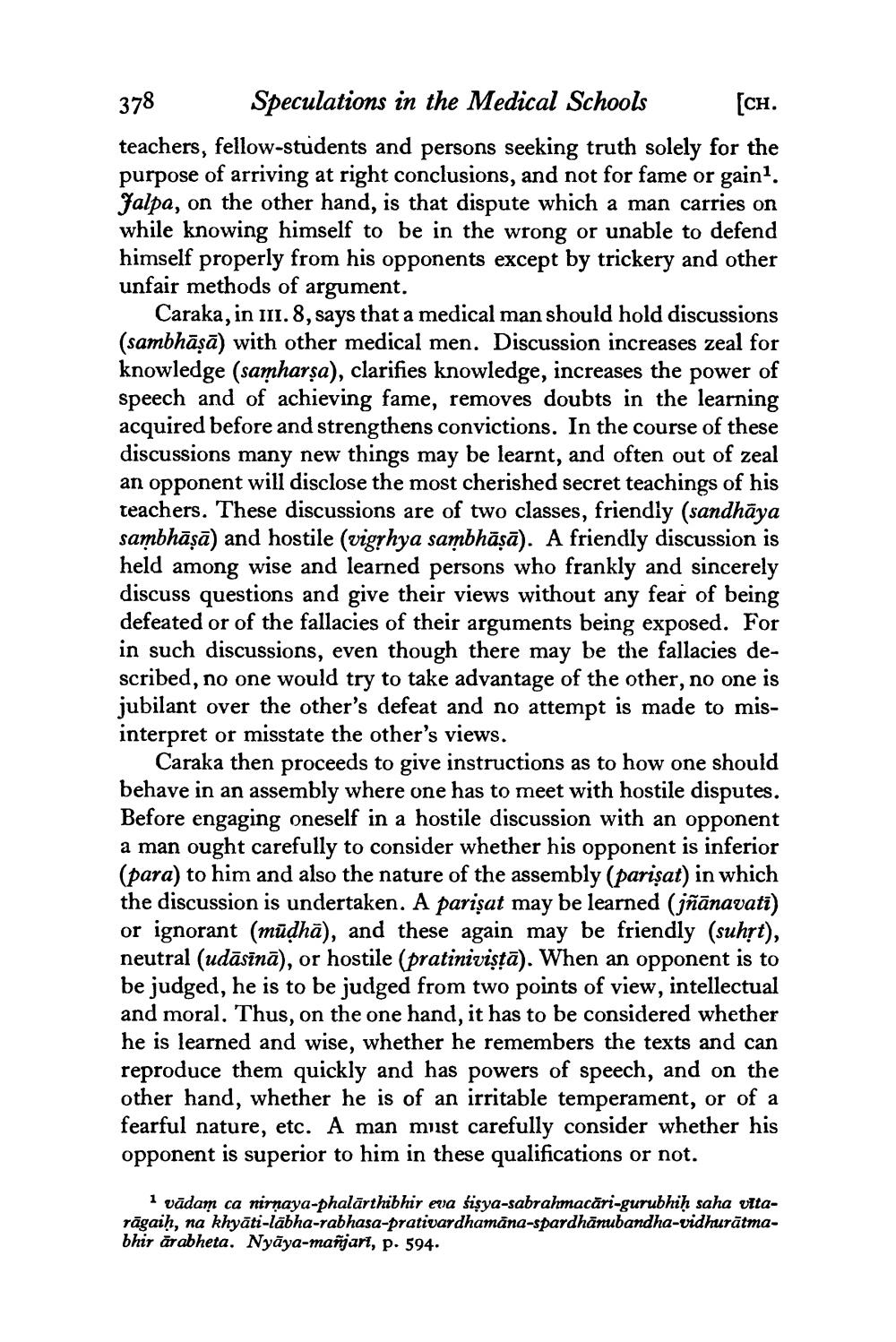________________
378
Speculations in the Medical Schools
[CH.
teachers, fellow-students and persons seeking truth solely for the purpose of arriving at right conclusions, and not for fame or gain1. Jalpa, on the other hand, is that dispute which a man carries on while knowing himself to be in the wrong or unable to defend himself properly from his opponents except by trickery and other unfair methods of argument.
Caraka, in III. 8, says that a medical man should hold discussions (sambhāṣā) with other medical men. Discussion increases zeal for knowledge (samharṣa), clarifies knowledge, increases the power of speech and of achieving fame, removes doubts in the learning acquired before and strengthens convictions. In the course of these discussions many new things may be learnt, and often out of zeal an opponent will disclose the most cherished secret teachings of his teachers. These discussions are of two classes, friendly (sandhaya sambhāṣā) and hostile (vigrhya sambhāṣā). A friendly discussion is held among wise and learned persons who frankly and sincerely discuss questions and give their views without any fear of being defeated or of the fallacies of their arguments being exposed. For in such discussions, even though there may be the fallacies described, no one would try to take advantage of the other, no one is jubilant over the other's defeat and no attempt is made to misinterpret or misstate the other's views.
Caraka then proceeds to give instructions as to how one should behave in an assembly where one has to meet with hostile disputes. Before engaging oneself in a hostile discussion with an opponent a man ought carefully to consider whether his opponent is inferior (para) to him and also the nature of the assembly (parișat) in which the discussion is undertaken. A parişat may be learned (jñānavati) or ignorant (mūḍhā), and these again may be friendly (suhrt), neutral (udāsīnā), or hostile (pratiniviṣṭā). When an opponent is to be judged, he is to be judged from two points of view, intellectual and moral. Thus, on the one hand, it has to be considered whether he is learned and wise, whether he remembers the texts and can reproduce them quickly and has powers of speech, and on the other hand, whether he is of an irritable temperament, or of a fearful nature, etc. A man must carefully consider whether his opponent is superior to him in these qualifications or not.
1 vādam ca nirṇaya-phalarthibhir eva sisya-sabrahmacari-gurubhiḥ saha vitarāgaiḥ, na khyāti-labha-rabhasa-prativardhamāna-spardhānubandha-vidhuratmabhir arabheta. Nyaya-manjari, p. 594.




